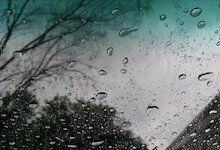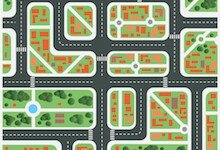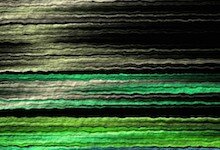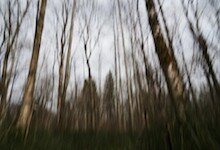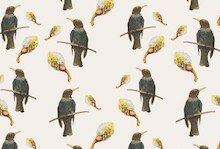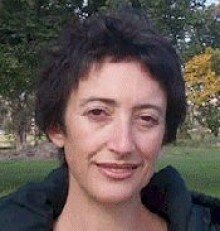
With a gift for giving the moment, Emma Lew is a Melbourne-based poet whose first poetry collection, The Wild Reply, won the Mary Gilmore Award and was the joint winner of the 1997 Age Poetry Book of the Year Award. Her poetry collection Anything the Landlord Touches was shortlisted for the 2003 NSW Premier's Kenneth Slessor Prize for Poetry and the Age Book of the Year Award for Poetry, and has won both the Judith Wright Calanthe Poetry Prize, and the Victorian Premier’s C.J.Dennis Prize for Poetry.
Dramatic certainly, but Lew’s poetry is perhaps most remarkable for its containment, its intensification, and its ability to evoke the ferment and fury of history and consciousness in their processes of reaction and revolution – through the isolation of a speaker’s voice, often in the form of interior monologues carved back to poetry. Her poems are deftly conceived and skillfully rendered artifacts. In a working note she comments:
What I try for in my poems is an effect similar to an experience I had years ago while visiting a touring exhibition of American Pop Art. I was standing up close in front of a painting of a long, low building that was rising out of a background of lurid yellow-green. The style was unfamiliar among the Warhols and Oldenburgs, so I wasn’t giving it careful attention. But I remember being jolted out of my numb gaze when I noticed a small patch of flame and smoke over on the far right-hand side of the roof. This serene, unassuming building was actually on fire – the horror and absurdity of it! An instant of tremendous surprise and disorientation, at once disturbing and thrilling; a feeling of being violentlyreawoken that was delicious and compelling.
(From How2)
A part of the disorientation and thrill of Lew’s work comes from her displacement of the lyrical self outside the contemporary, or the appropriation of aberrant selves in the contemporary (such as in ‘Prey’). Lew mines history and draws forth the spirit of times past, giving voice to an often historically premised confessional poetry (that is, she starts outside the self, depicting a time as much as a self). Her scrutiny of other selves and their place in a past history is at once slightly cold – she has an extraordinary gift for detachment and observation – and also given to the living warmth, sometimes flesh and blood, of her subjects, the peculiar tics and insights that make up a consciousness. Often these voices, carved out of another time, catch on shadows in our time. An example of this might be in the brilliant poem ‘Red’ where, drawing on the Russian Revolution, the reader faces a saboteur, more anarchist that revolutionary, the presumed violence of which might be disturbingly familiar to contemporary audiences:
we came and we came and we left our machines
at night, and everywhere hidden wires had only
to be touched. Class hatred had then just dawned.
Cables of denial sped. I remember how the tolling
of a bell would flood, the insurrection surely
cutting my face. Some high official was thrown
into the river, and this became the meshing
of the wheels, and when lightning struck that part
of the old palace, all the theatres were deceived,
or deceived themselves. We were the hired
and the depraved, thin and dark and unjust,
prepared to burst in that ray of light when it came
It is not so much that Lew inhabits other voices, but that they come to inhabit, breathe and indeed speak through her poetry. At a time when so much of Australian poetry might be divided between the experiential and experimental, the lyrical and the textual, Lew’s work stands out as an invigorating and extremely profitable engagement with something other than self, literature or language. She explores the recesses of times past and the peculiar, often violent genie of the contemporary, creating a range of haunting voices and narratives.
The lessons of history aside, Lew’s work is also very simply a great pleasure to read. Elsewhere, in more immediately lyrical works, she combines a powerful gift for suggestion with an ability to cultivate and capitalize on the jarring effect of perception entering consciousness:
Concepts of need are awash in oil dollars,
hoax callers are jamming the emergency lines,
and the fireworks were my only pleasure all year.
This gesture of putting my hand to my eye
alerts the world that I’m still alive.
(‘Goodbye to Maybe’)
The entry into language, or language itself, is not privileged at the cost of the evocation of a consciousness unfolding in surprising and humorous ways.
Lew’s gift for the dramatic voice is captivating. She has a keen ear for the sonority of interiority and history alike, as for the exorbitance and strangeness of the autonomous voice (the interiority of the monological, its alogic) that carries over into her more immediately experiential poetry, merging with an at times surrealistic ease in disorientation and surprise, so that at each moment the world, be it of history or self, is given back to the reader wholly new and mesmerising.
Poems
PREY
RIOT EVE
Links
A special feature on new Australian writing
Working notes by Lew and some poems.


